#Shi’ism
Text

“And the same chain of narrators that he Messenger of Allah ﷺ said: "Verily, Allah the Great and Almighty has a pillar of ruby, the top of which is under the Throne, and the bottom of which is on the back of the fish which swims in the Seventh lowest Earth. When a servant of Allah says `there is no god but Allah’, the Throne trembles, and both the pillar and fish move. So Allah, the Blessed and the Most High says: `O Throne of Mine! Remain calm!’ Then it replies, `How shall I remain calm, when you have not forgiven the one who uttered those words?’ Then Allah, Blessed and Exalted be He, announces: `Bear witness, O inhabitants of My Heavens, that indeed I have pardoned the one who has uttered these words!’"
-Al-Tawhīd book 2 chapter 1 verse 20.
#books#history#literature#religion#theology#mysticism#esotericism#religious#islam#islamic#shia#Shia Muslim#shia Islam#sunni#sunnism#Shi’ism#shiism#sharia#tawhid#tawheed#taqwa#islamic tradition#islamic history#Hadith#shia Hadith#quotes
3 notes
·
View notes
Text
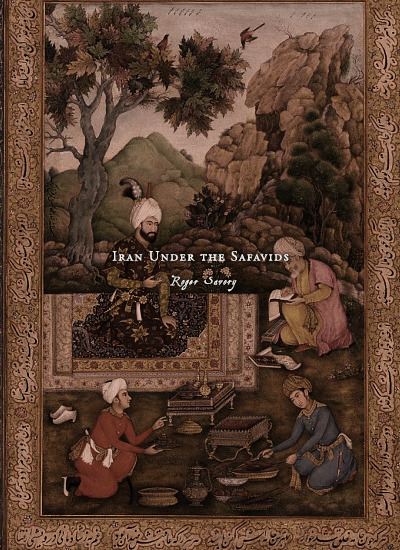
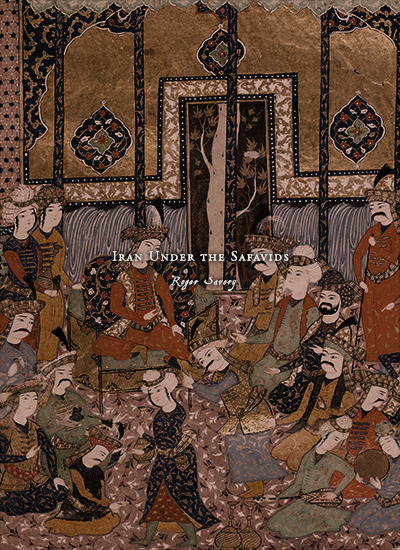
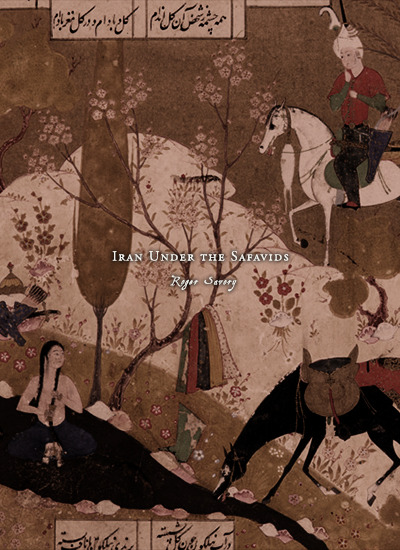
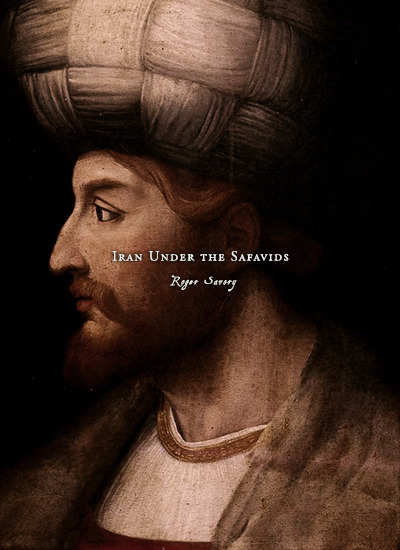
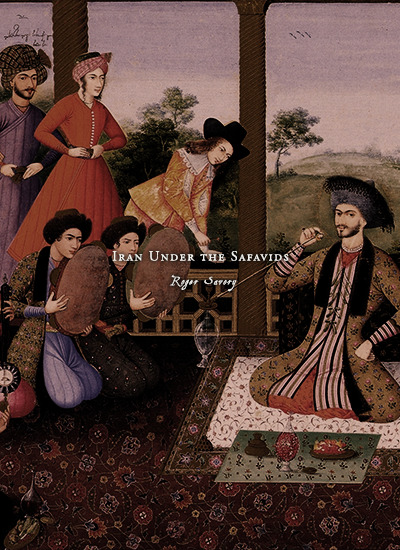
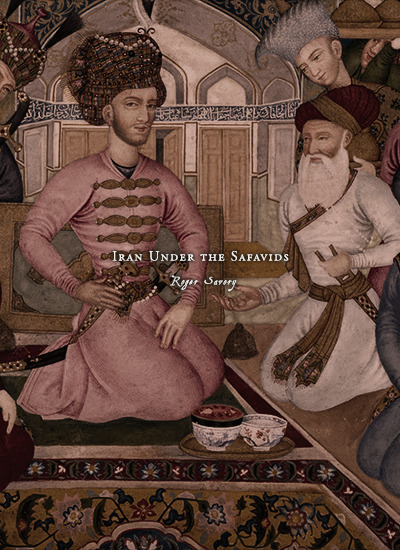
Favorite History Books || Iran Under the Safavids by Roger Savory ★★★★☆
The announcement by Sh��h Ismāʿīl at Tabriz in 1501 that the Ithnā ‘Asharī, or “Twelver”, form of Shi‘ism was to be the official religion of the newly established but not yet consolidated Safavid state was the single most important decision taken by Ismāʿīl. As previously noticed, Ithnä ‘Asharī Shi‘ism lay at the heart of one of the bases of the power of the Safavid leaders, namely, their claim to be the representatives on earth of the 12th Imam or Mahdl (if not the Imäm himself) ; the cult of ‘Alī had been inextricably bound up with the development of Iran of Sufism, or Islamic esotericism, from at least the thirteenth century, and the position of murshid-i kämil, or perfect spiritual director, was the second basis of the power of the Safavid leaders; finally, by asserting that ‘Alī’s younger son, Husayn, married the daughter of Yazdigird III, the last of the Sasanid kings, Shī ‘īs had linked the family of ‘Alī with the ancient Iranian monarchical tradition, and the divine right of the Iranian kings, deriving from their possession of the “kingly glory”, was the third basis of the power of the Safavid shahs. Ithnā ‘Asharī Shi‘ism was therefore the most important element in Safavid religious propaganda and political ideology.
… What were the benefits deriving from Ismāʿīl’s action? First, it harnessed the driving power of a dynamic religious ideology in the service of the new state, and thus gave the latter the strength to surmount its initial problems, and the momentum to carry it through the serious crises which faced the state after the death of Shāh Ismāʿīl I in 1524. Second, it clearly differentiated the Safavid state from the Sunnī Ottoman empire, the major power in the Islamic world in the sixteenth century, and thus gave it territorial and political identity. It can, of course, be argued that the establishment of a militant Shī‘ī state on the Ottoman border was an act of provocation which made conflict with the Ottomans inevitable, and to that extent militated against the interests of Iran. It is improbable, however, that Ottoman imperialist aspirations would not have embraced Iran during the sixteenth century, the period of the greatest expansion of the Ottoman empire, whether or not the Safavid revolution had succeeded; the fact that it did succeed gave the Safavid state at least a chance of survival against the most formidable military machine ever seen in the world of Islam. In short, the imposition by the Safavids of Ithnā ‘Asharī Shi’ism as the official religion of the state had the effect of producing a greater awareness of national identity, and thus of creating a stronger and more centralised government.
#litedit#historyedit#safavid dynasty#iranian history#history books#asian history#history#nanshe's graphics
11 notes
·
View notes
Note
I know u don't call yourself a radfem but u are experienced in the space. I don't get how radfems can be extremely and sometimes violently against religion and even religious people. Weren't many of the influential radfem women Jewish? They quote them and even form their views on their teachings. Some radfems are pagans but the pagan religions were extremely sexist even more than most religions rn. Sorry for the weird ask but I saw ur post on radfems saying awful things to u for being shi'i
id like to clarify that im not religious whatsoever. in my country being shi’i is practically treated like an ethnoreligious group. beyond my family sometimes using phrases rooted in shi’i religious beliefs (ya ali; wa hussain; etc), the relatives im close to are also generally not at all practicing (either converted out of shi’ism or islam or are atheist/agnostic). regardless we are all regarded as shi’i and so i acknowledge that part of myself, especially as shi’a are highly persecuted around the muslim world and many muslims have shown me that they’ll consider me a shi’i muslim regardless of how i refer to myself or what beliefs i actually hold.
as for the thing about jewish radfems, if i recall correctly it is the same as my case: the women are ethnically jewish but most if not all reject judaism the religion. ultimately tho i think we shouldn’t get distracted by hating on people who simply hold harmless religious beliefs or identify w a certain religious group, and focus on the issue of religion in itself. criticising religion isn’t wrong the same way criticising any philosophy isn’t wrong. but when it comes to criticising people, we need to make sure that we’re criticising their beliefs or actions, not for example criticising a woman for wearing a hijab (despite not knowing her specific beliefs, her story, etc).
10 notes
·
View notes
Text
“While there are many sub-groups among Alevis, the community tends to close ranks when it comes to the Sunni world, employing an “us” versus “them” approach and emphasizing its position as a marginalized religious/ethnic minority.
Following severe persecution and massacres by the Ottomans which lasted into the 18th century, Alevis went underground pretending to be Sunnis to conceal their faith and survive in a hostile environment. Isolated from both the Sunni Ottomans and the Shi’a Safavids, the Alevis developed traditions, practices, and doctrines that by the early 17th century marked them as a closed, autonomous religious community, opposed to all forms of external religion.
Unlike Sunnism and mainline Shi’ism, Alevism does not possess a tradition of authoritative religious scholarship and official carriers of formal learning. Rather, it is more “a flowing together of various related movements, doctrines, ideas, rituals and traditions in a flexible synthesis, its strength lying in shared local traditions and esoteric interpretations of Islamic belief and practice.”
Some other differences distinguishing Alevis from Sunnis: the use of wine for religious ceremonial functions; non-observance of the five daily prayers and prostrations (they only bow twice in the presence of their spiritual leader), Ramadan, and the Haj (they consider the pilgrimage to Mecca an external pretense, the real pilgrimage being internal in one’s heart); and non-attendance of mosques.
To prevent penetration by hostile outsiders, the Alevis insisted on strict endogamy, which eventually made them into a quasi-ethnic group. Alevi taboos limited interaction with the dominant Sunni political-religious centre. Excommunication was the ultimate punishment threatening those who married outsiders, cooperated with outsiders economically, or ate with outsiders. It was also forbidden to use the state (Sunni) courts.”
1 note
·
View note
Text
Khutoot Al Areedah: An Exposition and Refutation of the Sources of Shi'ism
Khutoot Al Areedah: An Exposition and Refutation of the Sources of Shi’ism
Table of Contents
1 PUBLISHER’S NOTE 1
2 INTRODUCTION 2
3 THE PREDETERMINED FACT OF SECTARIANISM 3
4 THE CALL TO RECONCILIATION OF THE VARIOUS SECTS AND SCHOOLS OF THOUGHT 6
5 ISLAMIC JURISPRUDENCE 9
6 THE QUESTION OF TAQIYYAH 10
7 SHI’ITE ATTACK ON THE NOBLE QUR’AN10
So-called Suratul-wilaayah 12
Fatwa against companions 12
8 SHI’ITE LIES, EVEN AGAINST `ALI 15
9 REJOICING OF THE…
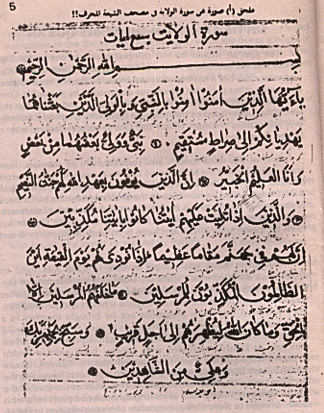
View On WordPress
1 note
·
View note
Text
🍃🕊🍃 Question 37: Imamate at Childhood
Question: How is it possible for some of the Imams to reach Imamate while still children?
🍃 Brief Answer
According to the undisputed belief of Imami Shi’ism taken from numerous verses and Prophetic traditions, the Imamate is a Divine position. So if it is established that someone has been divinely appointed to this position a Muslim must submit to his command and authority without question obeying Allah (awj) as He says, “Allah best knows where to place His messengership.”
There are several ways to ascertain whether Allah (awj) has appointed a particular person to this position:
1. Prophetic traditions.
2. Being introduced and specified by other Imams, particularly the previous Imam.
3. Possessing the other conditions of Imamate, such as inherent knowledge, more knowledge than anyone of their time, infallibility, soundness and moderation of body and spirit, and ability to perform miracles and extraordinary deeds.
The Shi’as contemporary to young Imams—that is, Imam Muhammad b. ‘Ali al-Taqi (ع) at eight years, Imam ‘Ali b Muhammad al-Naqi (ع) at nine years, and Imam al-Mahdi (ع) at five years—were not unaware of these things, and it was after great searching and effort that they attained certainty about their Imamate and submitted to their authority. Later generations in turn rely on research, historical records, and traditions. On the other hand, the position of Imamate, unseen Divine endorsement, and manifestation of extraordinary deeds at the hands of these personages prevent them from being compared to normal human beings.
In addition, for a Muslim who believes in the Qur`an, the granting of a Divine station on the basis of Divine wisdom, knowledge, and grace to someone of young age should not be surprising, since the prophethood of ‘Isa (ع), Yahya (ع), and Sulayman (ع) also took place at a young age. This is why the noble verses that indicate this point were frequently cited by the Imams (ع).
🍃 Detailed Answer
Imamate, in the view of Imami Shi’as, is the practice by the Wali (Divinely appointed authority) of his authority over people (wilayah); in other words, Imamate is a Divinely-appointed station for managing the people’s worldly and religious affairs as well as guiding them to the peak of felicity and humanity. Thus, the Imam cannot be determined or selected by the people, since inherent knowledge and inner infallibility are unseen qualities which no one but Allah (awj) knows, and these are the two most important qualities of the Divinely-appointed Wali.
A monotheist who has submitted to Divine authority over him or herself is wholly obedient to the commands and prohibitions of his or her Allah (awj). Thus, in accepting the authority of the leaders appointed by Him as well, he or she must be fully obedient, submit to their authority, and avoid comparing them to others or baselessly second-guessing their appointment. There are several ways to recognize the divinely appointed Imam/Wali (guardian):
1. Studying their conduct and actions.
2. Referring to the attributes and signs that the previous Wali has mentioned for the succeeding Wali.
3. Seeking miracles and verifying the presence of the conditions and necessary corollaries of Imamate
It is possible to find out about their lives and character by referring to books of history and biography, and by looking at collections of traditions one can find the traditions that have come down from the Prophet (ص); and finally by examining at the traditions of each Imam, one can come to recognize the next Imam. The Imams (ع) performed miracles both in their lifetimes and after their martyrdoms. The occurrence of such extraordinary deeds for those who sought recourse to them is so frequent that it is beyond reckoning, and it is something that everyone searching for truth can experience.
So there is no specific age necessary to attain the station of Imamate. The spiritual, intellectual, and mental maturity required for the position can be granted by Allah (awj) from the day of his birth. This fact is one of the extraordinary phenomena that prove their Imamate, it does not detract from it. Obviously, from a superficial and shortsighted viewpoint, it appears difficult for prominent personalities, scholars and the old and young to submit to the authority of a boy; for ordinary people accepting such an authority would not be as easy as accepting older Wali.
The contemporaries to the young Imams—that is, Imam Muhammad b. ‘Ali al-Taqi (ع) who became Imam at the age of eight, Imam ‘Ali b. Muhammad al-Naqi (ع) who attained the Imamate at the age of nine, and Imam al-Mahdi (ع) who became Imam at the age of five—were no exceptions to this rule, and they posed this very question to Imam ‘Ali b. Musa al-Rida (ع).
For example, there are the following traditions: It has been narrated from Hasan ibn Jahm that he was in the presence of Imam ‘Ali b. Musa al-Rida (ع). Imam Muhammad b. ‘Ali al-Taqi (ع), still a child, was also present. After a long conversation Imam ‘Ali b. Musa al-Rida (ع) said to me, “Hasan! If I tell you this child is to be your Imam, what would you say?” I said, “May I be your ransom! Whatever you say, I say the same thing.” The Imam (ع) said, “You speak the truth.” Then Imam ‘Ali b. Musa al-Rida (ع) exposed the shoulder of Imam Muhammad b. ‘Ali al-Taqi (ع) and showed me a symbol that was similar to two fingers, and he said, “A comparable symbol was in the same place in the body of Imam Musa b. Ja’far al-Kazim (ع).”1
It has also been narrated from al-Mahmudi that he said, ‘I was in Tus (an area in Central Asia near present-day Mashhad) in the presence of Imam ‘Ali b. Musa al-Rida (ع). One of his companions said, “If something were to happen to the Imam, who would be the divinely chosen Imam after him? The Imam (ع) turned to him and said, “Regarding the issue of Imamate, after me refer to my son Jawad (Imam Muhammad b. ‘Ali al-Taqi (ع)).” He (al-Mahmudi) said, “He is still a child!” Imam ‘Ali b. Musa al-Rida (ع) replied, “Allah chose ‘Isa (ع) as His messenger though he was younger than Imam Muhammad b. ‘Ali al-Taqi (ع).”2
In spite of these traditions some of Imam ‘Ali b. Musa al-Rida’s (ع) followers out of anxiety still went in search of his successor. “Some of them went after ‘Abdullah ibn Musa, the brother of the eighth Imam (ع). Since they weren’t willing to accept anyone’s Imamate without evidence, they presented to him some questions, and when they found him unable to answer they forsook him.” This is because what was important to them was the manifestation of this divine aspect in the Imams’ knowledge. This is also why they would apply this principle to all the Imams and subject them to various questions, and only when they felt that they were able to answer them (along with the textual declarations of their Imamate) would the Imami Shi’as recognize them as infallible Imams. The young Imams were no exceptions to this rule; the leaders of the Shi’as would examine them to become certain of their level of knowledge and ability to perform clear miracles.
On the other hand, the enemies of the Imams, who were always waiting for an opportunity to marginalize the Imams and disperse the Shi’as from around them, did not sit by idly. Arranging intellectual gatherings and the like they strove to make the young age of these Imams an excuse to altogether marginalize them from society. But the more effort they made, the more they debased themselves, and the superior knowledge of the Imams stood out to their knowledgeable contemporaries.
In addition, it is obvious to those familiar with the Qur`an and stories of the prophets that several of them reached the station of prophethood, messengership and even Imamate at a young age, like ‘Isa (ع)3, Yahya (ع)4 etc. The majority of prophets reached this stage, however, at the age of forty or older.
In sum this issue should be referred to the Divine wisdom and knowledge, and as in all judgments one should make use of all available contexts, evidences, and proofs. As Allah (awj) says
“Say, O Lord! Yours is the dominion of the sky and the earth; You give the kingdom to whom You please and take it from whom You please, and You grant honor to whom You please and debase whom You please. All good is in Your hands. Verily You have power over all things.”5
Allah (awj) explains similar objections of the Tribes of Israel and replies in these words:
“The Prophet told them, Verily Allah has made Talut your king. They said how can he be king, while we are more worthy of kingship than he, and he is lacking in wealth? He [their prophet] said Allah has chosen him over you and has granted him intellectual and physical abilities, and Allah gives His kingdom to whomever He pleases, and Allah is all-encompassing, all-knowing. And the prophet said to them, Verily the sign of His kingdom is that there shall come to you the chest in which there is tranquility from your Lord and residue of the relics of what the children of Musa and the children of Harun have left, the angels bearing it”6
🍃🌺🍃~*~⛲️~*~🍃🌺🍃
🍃🕊🍃 Sources 🍃🕊🍃
1. Mowsu‘ah al-Imam al-Jawad,
(vol. 1, pg. 137)
وَرُوِيَ عَنْ الْحَسَنِ بْنِ الْجَهْمِ قَالَ: دَخَلْتُ عَلى الرِّضَا ( ع) وَأَبُو جَعْفَرٍ ( ع) صَغِيْرٌ بَيْنَ يَدَيْهِ فَقَالَ لِيْ بَعْدَ كَلاَمٍ طَوِيْلٍ جَرى لَوْ قُلْتُ لَكَ يَا حُسَيْنُ إنَّ هَذَا إِمَامٌ مَا كُنْتَ تَقُوْلُ؟ قَالَ: قُلْتُ: مَا تَقُوْلُ لَهُ لِيْ جُعِلْتُ فِدَاكَ. قَالَ: أَصَبْتَ، ثُمَّ كَشَفَ عَنْ كَتِفِ أَبِي جَعْفَرٍ ( ع) فَأَرَانِيْ مِثْلَ رَمْزِ إِصْبَعَيْنِ فَقَالَ لِيْ: مِثْلُ هَذَا كَانَ فِي مِثْلِ هَذَا الْمَوْضِعِ مِنْ أَبِي مُوْسى صَلَوَاتُ اللهِ عَلَيْهِ.
2. Dala’il al-Imamah, (pg. 388)
عَنِ الْمَحْمُودِي قَالَ: كُنْتُ وَاقِفاً عَلى رَأْسِ الرِّضَا ( ع) بِطُوسِ فَقَالَ لَهُ بَعْضُ أَصْحَابِهِ: إِنْ حَدَثَ حَدَثٌ فَإِلـى مَنْ؟ قَالَ: إِلـى ابْنِي أَبِي جَعْفَرٍ. قَالَ: فَإِنِ اسْتَصْغَرَ سِنُّهُ؟ فَقَالَ لَهُ أَبُو الْحَسَنِ: إِنَّ اللٌّهَ بَعَثَ عِيسى بْنَ مَرْيَمَ قَائِماً بِشَرِيعَتِهِ فِي دُوْنِ السِّنِّ الَّتِي يَقُوْمُ فِيْهَا أَبُو جَعْفَرٍ عَلى شَرِيْعَتِهِ.
3. Surat Maryam (19), (Verses 29-30)
فَأَشَارَتْ إِلَيْهِ قَالُوا كَيْفَ نُكَلِّمُ مَنْ كَانَ فِي الْمَهْدِ صَبِيًّا. قَالَ إِنِّي عَبْدُ اللٌّهِ آتَانِيَ الْكِتَابَ وَجَعَلَنِي نَبِيًّا...
4. Ibid., (Verse 12)
يَا يَحْيَى خُذِ الْكِتَابَ بِقُوَّةٍ وَآتَيْنَاهُ الْحُكْمَ صَبِيًّا
5. Surat Ali-’Imran (3), (Verse 26)
قُلِ اللٌّهُمَّ مَالِكَ الْمُلْكِ تُؤْتِي الْمُلْكَ مَنْ تَشَآءُ وَتَنْزِعُ الْمُلْكَ مِمَّنْ تَشَآءُ وَتُعِزُّ مَنْ تَشَآءُ وَتُذِلُّ مَنْ تَشَآءُ بِيَدِكَ الْخَيْرُ إِنَّكَ عَلَى كُلِّ شَيْءٍ قَدِيرٌ
6. Surat al-Baqarah (2), (Verse 247)
وَقَالَ لَهُمْ نَبِيُّهُمْ إِنَّ اللٌّهَ قَدْ بَعَثَ لَكُمْ طَالُوتَ مَلِكًا قَالُوا أَنَّى يَكُونُ لَهُ الْمُلْكُ عَلَيْنَا وَنَحْنُ أَحَقُّ بِالْمُلْكِ مِنْهُ وَلَمْ يُؤْتَ سَعَةً مِنَ الْمَالِ قَالَ إِنَّ اللٌّهَ اصْطَفَاهُ عَلَيْكُمْ وَزَادَهُ بَسْطَةً فِي الْعِلْمِ وَالْجِسْمِ وَاللٌّهُ يُؤْتِي مُلْكَهُ مَنْ يَشَآءُ وَاللٌّهُ وَاسِعٌ عَلِيمٌ
🍃🌺🍃~*~⛲️~*~🍃🌺🍃
🍃🕊🍃 al-Islam.org 🍃🕊🍃
.
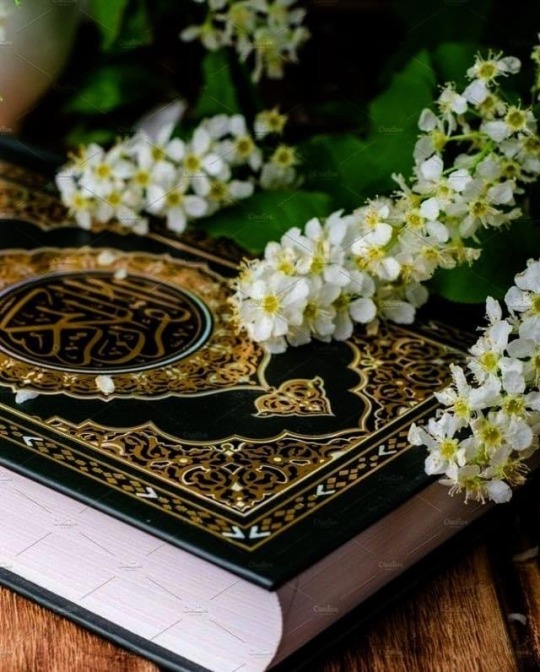
1 note
·
View note
Note
hey quick q i’m looking into shi’ism but i’m confused. why do you mourn husayn ra’s death but not the prophet ﷺ’s death ? :/
we mourn both of them!
with imam husayn (as), the battle of karbala was a significant moment in islamic history. it symbolizes the struggle for justice and resistance against oppression.
additionally, the ahlul-bayt went through awful things for months after the battle. they were paraded around cities, with the women not wearing their hijabs (and/ veils), and everyone was chained up. there’s definitely more things but it’s not coming to mind rn
as for the Prophet (pbuh), we mourn him as well on his islamic death date. our mourning practices for everyone else aren’t as elaborate due to the event of the time. but, shias do hold a deep reverence for the Prophet and commemorate his life and teachings during various occasions.
i hope that helped but also feel free to dm me :)
0 notes
Text
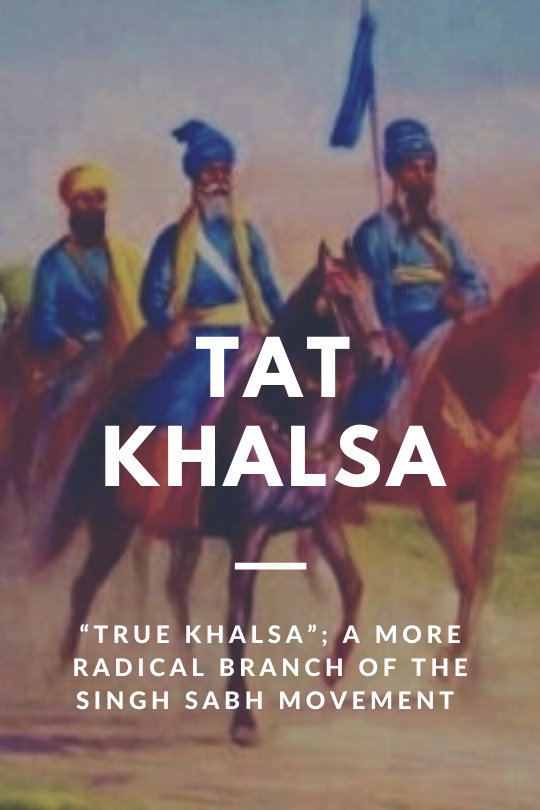
Religious Studies Term Of The Day: Tat Khalsa
Hey everyone. So remember how yesterday I mentioned the Singh Sabha movement? Remember how it was generally loyal to British colonization and owed its development due to it? Well, that wasn’t exactly the full scope of what was going on. Today, I thought I’d talk about the Tat Khalsa, which I learned about in the context of the Singh Sabha movement, but I have also now learned in research that it is a reference to a former schism in Sikhi. But one step at a time.
The Singh Sabha movement, while benefiting much from British colonization, was also experiencing the double edged sword, if you will, of British rule. You see, many of the Sikhs were being exposed to new ideas and pressured into accepting them, chief among them to reject Sikhi in favor of Christianity. So many Sikhs were losing the faith or, at the very least, becoming passive in their faith in order to assimilate. That’s where the Tat Khalsa came in. Meaning “True Khalsa” or “True Brotherhood,” Sikhs of this branch were the ones pushing for radical reforms to get Sikhi back to the way that the Gurus had intended, to preserve the faith’s purity from colonization. They saw their struggle as that of the previous Tat Khalsa, which is a fun Wikipedia read if you get the chance. Sikhi almost broke off into two different factions with completely different forms of practice and leadership, similar to how Shi’ism and Sunnism broke into different sects of Islam. How that gets resolved is really fun. Check it out.
Anyway, Tat Khalsa was a radical movement within Singh Sabha but it did become the dominant voice in the movement, pushing for those reforms like allowing women into the Khalsa while trying to emphasize orthodoxy. It’s really interesting. It reminds me a bit of Conservative Judaism, where Conservative Jews are orthodox in their practice (Sabbath and dietary observance) but reformers in their cultural norms (allowing women to serve religious functions). But hey, that’s just some observations from a lifelong learner. I’m always open to hearing the thoughts of others on these things. I hope everyone is staying safe and has a great day.
#religiousstudies#religious studies#religion#religiousliteracy#religious traditions#sikhism#sikhs#sikh community#sikhhistory#tat khalsa#tat#khalsa#true khalsa#women and religious traditions#Leona M Anderson#Pamela Dicky Young#Doris R Jakobsh
1 note
·
View note
Text
in light of Recent Events, I’m sharing this excellent (and very in-depth) article from Hoda Katebi: Understanding Structural Anti-Shi’ism in Sunni Diaspora Spaces
Highlights below


#i have to go do things right now but i may reblog this later with some of my own thoughts#bc I really don't think a lot of sunnis realise just how prevalant and *violent* anti-shi'a sentiment is in muslim spaces#esp online and in diaspora spaces#it's sometimes subtle#but often it is flat out not#it is a common experience for me to click on a tweet or ig post about shi'as and have the comments all be wishing death#ANYWAY#sorry to bring down the mood#but i'd also like non-muslims to read this?#so long as people are not gonna be weird and islamophobic#bc like. non-muslims often think of this as sectarian tensions etc etc#when it's more like we are 10% of muslims globally and actively persecuted#and people just. don't know or don't realise#that during one of the holiest times of our year it is a common experience to be at mosque going 'oh hey another mosque got attacked/bombed'#ok i will save all my thoughts for later now#salmon's muslim stuff#text post#my post
1 note
·
View note
Text
new brainworm: muharram as a fluid and temporal site of necropolitical production. the karbala narrative as a polysemous instrument for institutions engaging in necropolitics. shariati’s contrast between “black” (backward-looking) and “red” (forward-looking) shi’ism as...... demanding a consciousness of the necropolitical role of hossein’s story in dominant institutional (state & religious) narratives......?
0 notes
Text
sometimes i wonder whether sunnism or shi’ism is the more sexist sect and it’s a hard choice
5 notes
·
View notes
Note
Hi today i learned that multi level marketing schemes are explicitly banned in Islam, how does it feel to be of a faith that just keeps winning
You should see the companions of Imam Ali (a) and how they actually were martyred because there were Arab kings who stole money from the community and used them to erect palaces and etc. Like the entire point of Shi’ism is how far greed and power can corrupt people and to what extent they will go to achieve this.
In fact, it wasn’t even a Non-Muslim who killed the Prophet’s family (a), they were all Muslims, who were so concerned for materialism, they killed each member of the Prophet’s family (pbuh&hf)
93 notes
·
View notes
Text
So many emotions tonight but this is what Shi’ism does to a person..
2 notes
·
View notes
Text
For the first time, the most cherished and blessed Hadith books of Shi’ism have been translated to English and uploaded on the website for absolutely FREE! | https://bit.ly/3AlIuvD
More books in English:
Bihar Al-Anwaar: https://bit.ly/2X61EaG
Mafatih Al-Jinan: https://bit.ly/3jP9xZV
Kitab Al-Ghayba: https://bit.ly/3s2Jli8
English Series/ Movies:
Mukhtar Namah: https://bit.ly/3xt0X7H
Imam Ali Series: https://bit.ly/3AnGbZa
Iranian Revolution: https://bit.ly/37ymqBv
Salman Al-Farsi Movie: https://bit.ly/3jrYSUE
Imam Jawad Series: https://bit.ly/3iv4G0r
Imam Reza Series: https://bit.ly/3jxBUeM
Shaykh Mufeed Series: https://bit.ly/2Vy0TX4
Men of Angelos: https://bit.ly/3isdfca
Imam Mahdi (ATFS) from Shia/ Sunni Narrations:
https://bit.ly/3xv8Yt0
Oppression of Syeda Zahra (AS) from Shia/ Sunni Narrations:
https://bit.ly/2VBhQA3
2 notes
·
View notes
Text
“The Islamic State’s “offensive jihad” is directed mainly against the region’s Shi‘a. Apart from theology, the perception that the Shi’a have expansionist designs on the Middle East necessitates fighting them. The Shi’ite project, so it is believed, aims at a “Shi’ite crescent extending from Tehran to Beirut.” The Islamic Republic of Iran, Hezbollah in Lebanon, and the Asad regime in Syria all form part of this “crescent.” Iran’s leaders are aiming “to turn Iraq into a Shi’ite state,” and the United States is complicit in their plan. According to the Islamic State, Iraq’s recent historical transition from a Sunni to a Shi’ite majority is evidence of a creeping “Shi’itization.” As Abu ‘Umar al-Baghdadi once asserted, it was only in the last 50 to 70 years that Sunni conversion to Shi’ism began. Before then, Iraq was a Sunni country.”
— “From Paper State to Caliphate: The Ideology of the Islamic State,” Cole Bunzel
1 note
·
View note
Text
دين الامامية هو الاقرار بتوحيد الله تعالى ذكره، ونفي التشبيه عنه، وتنزيهه عما لا يليق به، والاقرار بأنبياء الله ورسله وحججه وملائكته وكتبه، والاقرار بأن محمدا (صلى الله عليه وآله) هو سيد الانبياء والمرسلين، وأنه أفضل منهم ومن جميع الملائكة المقربين، وأنه خاتم النبيين، فلا نبي بعده إلى يوم القيامة، وأنجميع الانبياء والرسل والائمة (عليهم السلام) أفضل من الملائكة، وأنهم معصومون مطهرون من كل دنس ورجس، لا يهمون بذنب صغير ولا كبير ولا يرتكبونه، وأنهم أمان لاهل الارض كما أن النجوم أمان لاهل السماء.
The Imami religion is the affirmation of the tawhid of Allah, exalted be His mention, and the negation of similarity (tashbeeh) (i.e. to His creation) for Him, and His exclusion from what is not suitable for Him. And (it is) the affirmation of the prophets of Allah and His messengers and His hujaj and His angels and His books. And the affirmation that Muhammad صلى الله عليه وآله is the master of the prophets, and that he is superior to them and (superior to) all of the angels of proximity, and that he is the seal of the prophets. So there is no prophet after him until the day of the resurrection. And that all of the prophets and the messengers and the Imams عليهمالسلام are superior to the angels. And they are ma`sumeen, purified from every uncleanliness and filth, they do not consider to do neither the minor sin nor the major, nor do they commit it, and they are a safeguard for the people of the Earth as the stars are a safeguard for the people of heaven.
— Sheikh Saduq’s (ra) summary of Shi’ism in his Amali.
7 notes
·
View notes